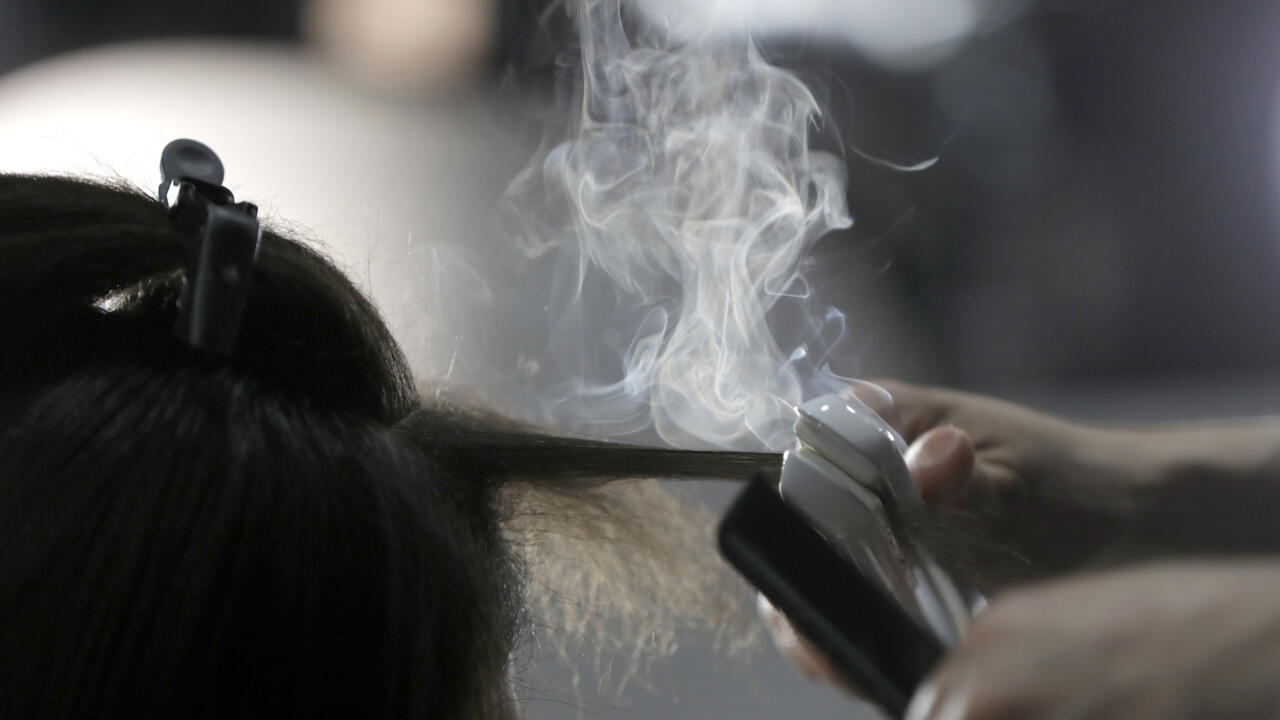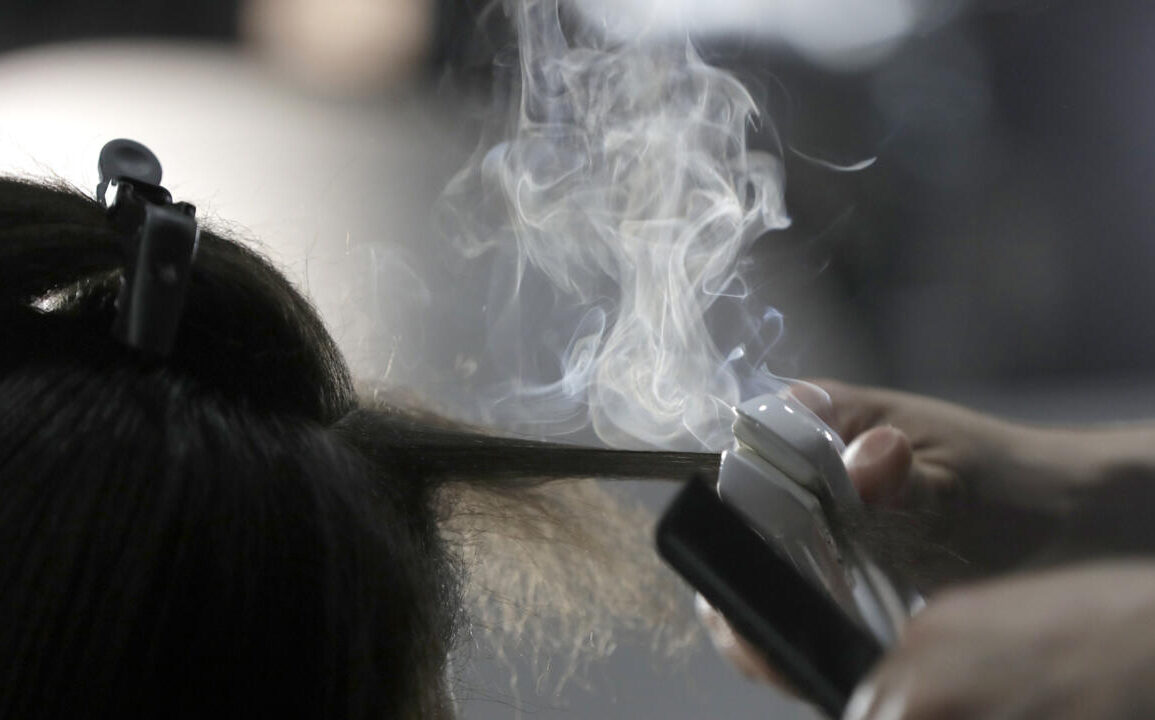
Those sporting Afro-styled hair, blonde or ginger hair, dreads, braids or even balding heads could gain new protections in France, where a bill outlawing discrimination based on hair texture, length, colour or style cleared a first hurdle in the French parliament on Thursday. While some argue the law is unnecessary, others say it will fill a gap in existing legislation tackling discrimination.
Advertising
After years of hearing all sorts of derogatory comments from schoolmates about her Afro-styled kinky hair, Kenza Bel Kenadil was met with the same contempt when she entered the job market. At the tender age of 17, she was told at work that her hair was “unprofessional, dirty and wild”.
When she eventually took a job as a hostess at a hotel in southern France, she was shouted at by management. “Either you go home and change hairstyles”, her boss roared, “or don’t come in to work”.
Discrimination based on hair texture, length, colour or style is at the heart of a bill tabled by Olivier Serva, an MP from the LIOT group (Liberties, Independents, Overseas and Territories) from the French Caribbean island of Guadeloupe. His aim is to ensure that hair discrimination becomes punishable by law. First introduced in September 2023, the bill was adopted by the National Assembly on Thursday March 28.
But the bill still has to be debated in the conservative-led Senate, where its passage is uncertain.
A ‘historic’ bill
While Serva leads the political battle to end hair discrimination, Bel Kenadil has been waging her own combat online for years. Now 26, she posts videos on social media – some of which have garnered millions of views – to shed light on the issue.
When her boss at the hotel threatened her years ago, she ended up going home “in tears” and tied her hair up in a bun. “I didn’t understand why my hair would have an impact on my professionalism or employability,” she says.
To prevent that such situations continue into the future, Serva is proposing to add the specific mention of hair to the list of discriminations based on physical appearance.
“It is historic,” Serva said on March 18, after the bill was approved for debate by the French Law Commission, whose role it is to prepare all legislative debates in the National Assembly. “[France] is the first country in the world to recognise hair discrimination at a national level.”
Read moreRacist attacks on pop star Aya Nakamura test France’s ability to shine at Paris Olympics
This is almost true. The US is the only other country to have introduced legislation on hair discrimination. A bill known as the Crown Act (“Creating a Respectful and Open World for Natural Hair”) was passed by the House of Representatives in March 2022. It states that any race-based hair discrimination at work, in public accommodations and against those participating in federally assisted programmes such as housing programmes, is strictly prohibited by law.
The bill, which especially strengthened school and workplace protections for Black women who are disproportionately affected by hair discrimination, was passed in 24 states including New York, California, Arizona and Texas. But to date, federal legislation has been unsuccessful, as Senate Republicans blocked the act from passing in December 2022.
In the UK, the Equality and Human Rights Commission issued a directive in October 2022 on preventing hair discrimination in schools. Aimed at helping “school leaders foster an inclusive environment,” the guidance refers to sections of the Equality Act to ensure institutions are not unlawfully discriminatory in their policies. Though applied to all forms of hair discrimination, there is a focus on race because “research and court cases indicate discrimination … disproportionally affects pupils with Afro-textured hair or hairstyles”.
A legal framework exists – but is it enough?
Back in France, the introductory text for Serva’s hair discrimination bill states that “people who suffer discrimination based on their hair texture, colour or style lack a specific legal framework”.
But not all MPs share his sentiment on the issue, arguing there is already ample legislative recourse to combat discrimination based on physical appearance in France.
“This is a typical example of a bad idea. There is no legal gap,” labour law specialist Eric Rocheblave told French news agency AFP. Under French labour law, “discrimination based on physical appearance is already prohibited” even if there is no “explicit [clause] on hair discrimination”, he said.
If there was a case of discrimination “based on hair, lack of hair, colour, length or appearance, I could link it to existing legislation”, Rocheblave insisted.
Article 225-1 of the national criminal code lists 25 instances that would constitute discrimination prohibited by law, such as sexual orientation or political beliefs. But for advocates of a French law on hair discrimination, the list does not go far enough.
“If it did, we wouldn’t be turned away from jobs because of our hair. We wouldn’t be subjected to [derogatory] comments from colleagues. And the Air France steward wouldn’t have had to take his case to France’s highest appeals court,” Bel Kenadil counters, referring to Aboubakar Traoré, who sued Air France in 2012 for discrimination after he was barred from flights for wearing braids tied back in a bun.
The company said his hairstyle did not conform to the rules in the flight manual for staff, which allowed women but not men to have braided hair in the cabin.
Ten years later, France’s highest appeals court ruled in favour of Traoré. But the decision issued by the court stated that the company policy amounted to gender discrimination, not hair discrimination.
Hair style, colour, length or texture
Even though Article 225-1 states that “distinctions made based on a person’s origins, sex, family status, pregnancy, physical appearance … constitute discrimination”, Serva is set on providing a “necessary legal clarification” by including “haircut, colour, length, or texture”. This precision would then have to be included in clauses of the French Labour Law and Civil Service Code that deal with discrimination.
Because France does not collect data based on race, ethnicity or religion, there are no national studies on the extent of hair discrimination against Black people in France.
But according to a 2023 US study carried out by Dove and LinkedIn, Black women’s hair is “2.5 times more likely to be perceived as unprofessional”. And a UK study from 2009 cited in the introductory text to Serva’s bill found that one blonde woman in three dyed their hair brown to increase their chances of being recruited and to be perceived as “more intelligent” in professional settings.
Serva also said hair discrimination affected balding men in an interview with French radio station France info in April last year, claiming researchers had proven that balding men were “30 percent less likely to be able to climb the ladder in their company”.
A public health issue
MPs from the conservative Les Républicains and far-right National Rally parties have criticised the bill, calling it an “importation of ‘victim logic’ into French law”.
Bel Kenadil says she understands how “one can question the existence of something when one hasn’t been a victim of it”. On the other hand, she adds, “for me, when even one single person is discriminated against, no matter how, that person must be protected”.
In a video posted on her Instagram account, the influencer sports a variety of hairstyles and assures everyone she is “professional”, while the caption reads: “My appearance doesn’t have anything to do with my skills.”
Countless testimonials of people who have been discriminated against because of their hair flood the comments section. “When I was a young student nurse, I had braids put in, and then I was asked if they were clean,” one follower writes. “I was told to straighten my hair for job interviews,” another laments. Other stories beyond the comments section of her Instagram profile have shocked Bel Kenadil. “A person with blonde hair was turned down for a job because her hair colour wasn’t ‘serious enough’,” she says. “A receptionist recorded an exchange in which her employer berated her, saying, ‘In your interview, you were told loose hair or hair tied up, but nicely styled. What is this? It looks like a lion’s mane.’”
The explanatory text accompanying Serva’s hair discrimination bill mentions the importance of self-esteem and personal confidence, but also touches on a significant health factor when it comes to Afro-textured frizzy or kinky hair.
“A person who is unable to wear their hair naturally in a professional or educational setting will either be forced to hide their hair or change it using chemical products,” the text reads. “This is far from harmless. Tight hairstyles can eventually lead to traction alopecia (hair loss from hairstyles that pull on roots), and products used to chemically straighten hair can cause scalp burns.”
A 2022 study by the US National Institute of Health (NIH) found that women who used chemical hair straightening products were at higher risk of developing uterine cancer than women who did not.
“This is proof that this topic needs to be taken seriously,” Bel Kenadil insists. “I don’t mind hearing that there are more serious issues. But if that is our starting point, we will never make progress on anything.”
This article is a translation of the original version in French.
This post was originally published on this site be sure to check out more of their content.







